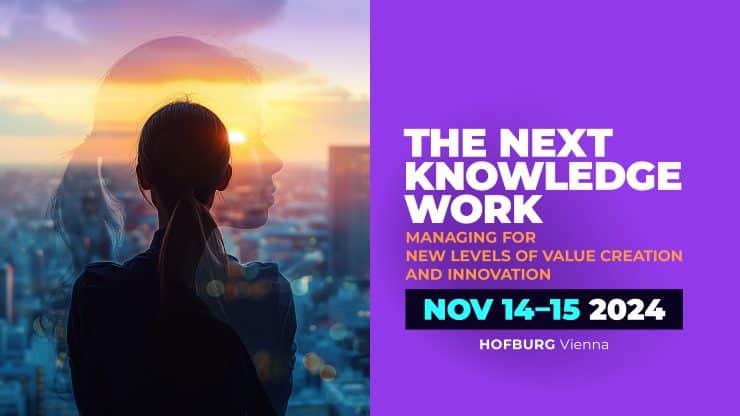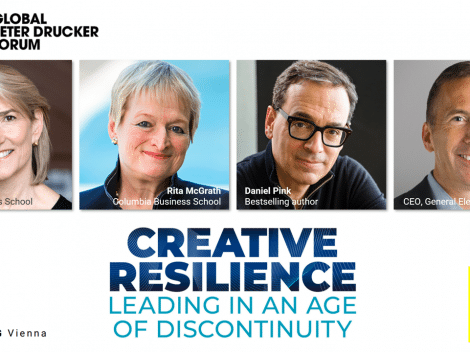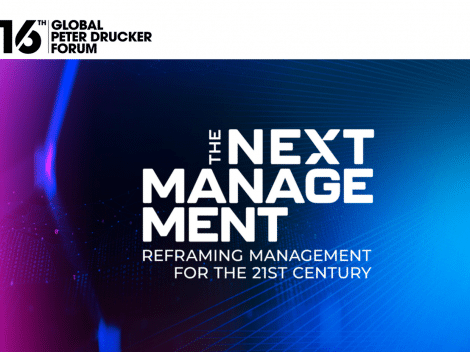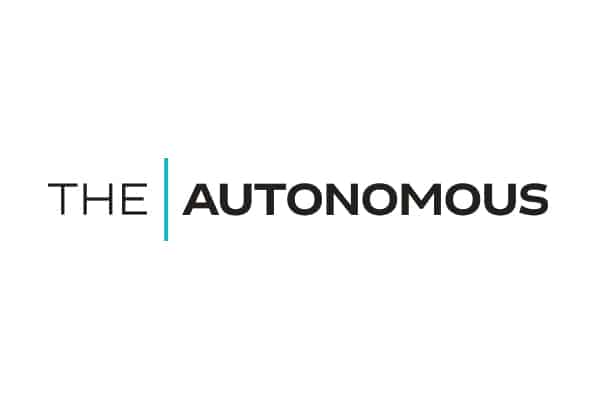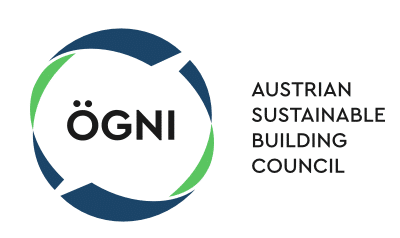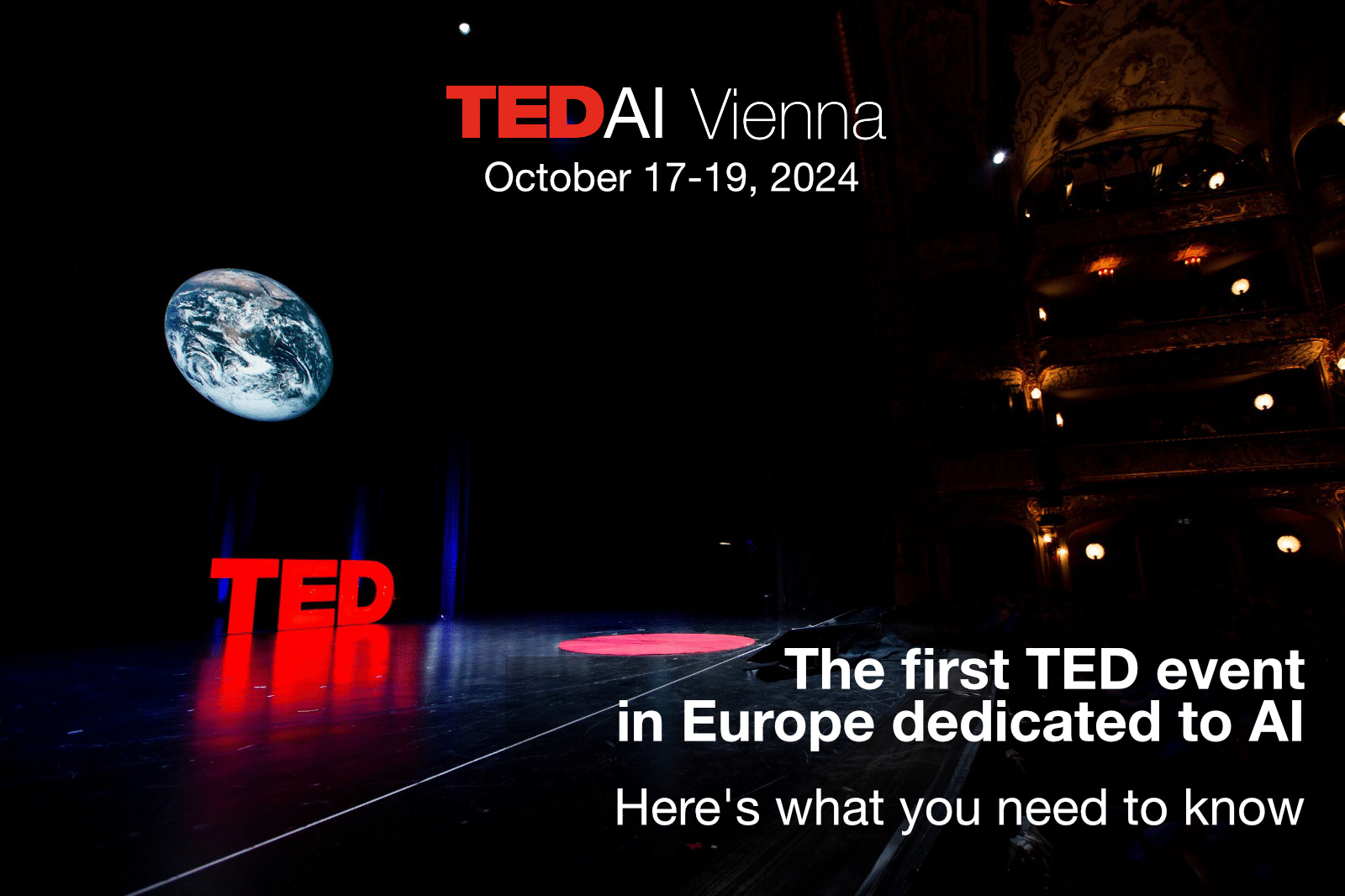This year’s 16th Global Peter Drucker Forum in mid-November announced its conference theme. For the next five years, the overarching theme will be “The Next Management” – with the first of these five years, 2024, focusing on “Next Knowledge Work”.
German version
“The twentieth century brought a massive shift in the developed world, from national economies centered on industrial manufacturing to a global economy dominated by knowledge-based organizations,” writes program curator Julia Kirby in her introduction to the theme. Kirby continues, “It’s debatable that the practice of management ever caught up with the implications—yet now, a fresh wave of transformative change is upon us. Artificial intelligence tools are now automating many intellectually challenging tasks, remote work arrangements are distributing them, new platforms support collaborative innovation, new understandings of human psychology offer more meaning and motivation. We think Peter Drucker was right that “the most important contribution management needs to make in the 21st century is to increase the productivity of knowledge work and knowledge workers.” Now a quarter-century down the road, where do we see great management achieving that higher performance, and how? What lessons can we take away from the pioneers of the next knowledge work?”
In his opening remarks for the annual theme kickoff, Forum President Richard Straub reminded us that while technology contributes to economic progress, the key factor for translating it into economic outcomes is the “social technology” of management and leadership. The finest technology remains underperforming without proper management, and projects and companies fail regardless of the quality of the technology without leadership, Straub further elaborated.
The kickoff is available as a recording here:
Bestselling author Michele Zanini (“Humanocracy”, co-authored with Gary Hamel) interviewed London Business School Professor Tammy Erickson during the kickoff. The underlying message was clear: our organizations are drilled for industrial efficiency, yet innovation and adaptability to ever-changing conditions require the exact opposite. Hierarchies, silos, and inflexible processes particularly hinder knowledge work.
International talent and leadership expert Claudio Fernández-Aráoz emphasized that “people decisions” are becoming increasingly central in the era of AI and digitalization. The right job placements and creating a work culture that can retain talent and high-quality expertise are crucial.
Tojin Thomas Eapen, founder of the Center for Creative Foresight (and author of “Bioinspired Strategic Design”), stressed the urgent need for technological education to quickly incorporate design principles and people skills.
Antonella Mei-Pochtler, Board member of Publicis SA and Generali Group, highlighted the challenge of keeping pace with rapidly advancing technological development with suitable legal frameworks. She advocated for collaborative learning through public-private partnerships.
The host of the kickoff event, Johan Roos, Chief Academic Officer at Hult International Business School, emphasized the importance of balancing technological perspectives with human-centered management and social responsibility. History has shown that a one-sided emphasis leads to undesirable outcomes and developments.
Conclusion
Not only is technology rapidly evolving, but management and leadership also need to implement new management practices that are partly already known in practice. Old-school management of the industrial society yields poor results in times of dynamics, creativity, and innovation. Mistakes in people management and leadership can quickly backfire in situations of increasing speed.
Executives will gather at the Global Peter Drucker Forum in November at the Vienna Hofburg to exchange ideas and learn from each other.
For more events and details, visit: https://druckerforum.org/

